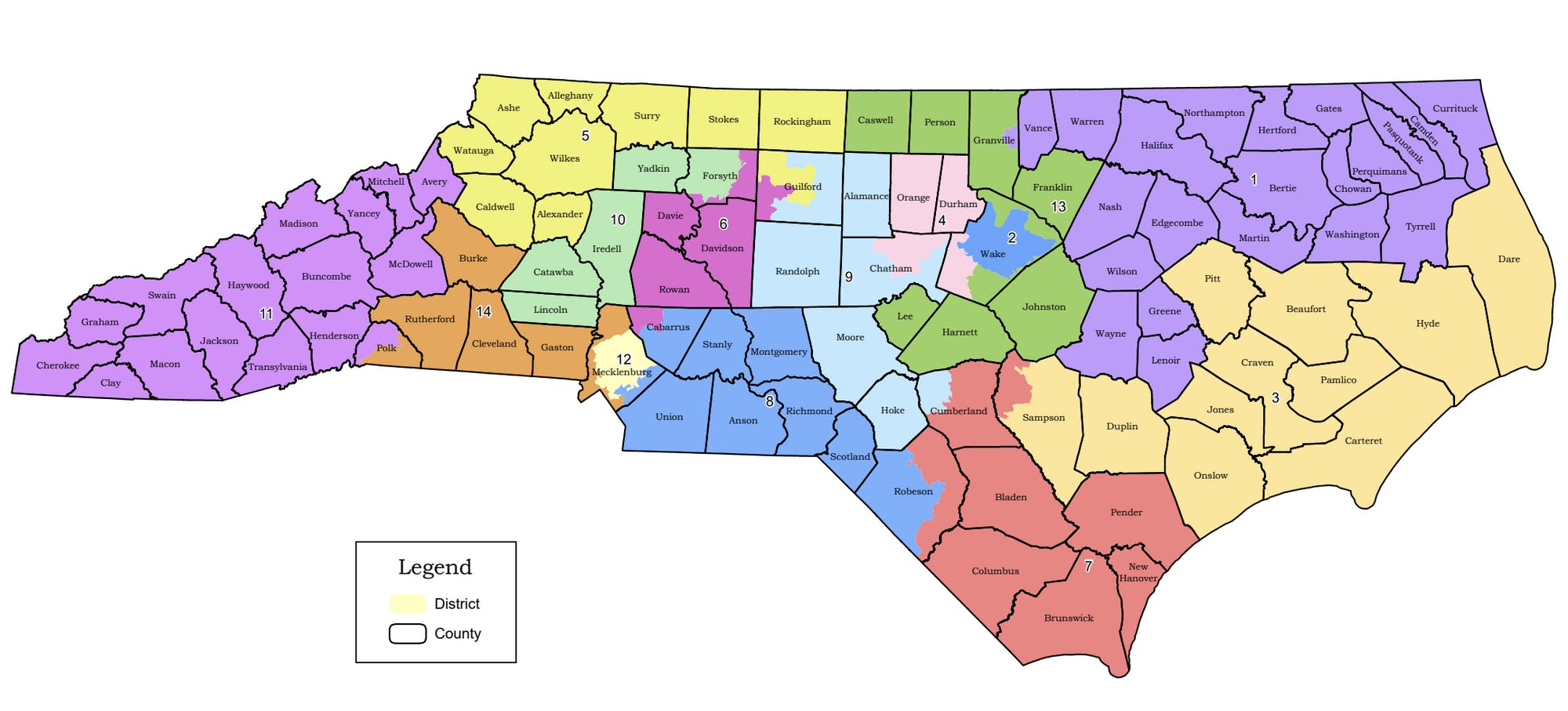A new lawsuit filed Monday in federal court challenges several districts in North Carolina's new congressional maps and alleges they are an illegal racial gerrymander under the 14th and 15th amendments.
The lawsuit — which was filed by several individual voters from across the state — specifically said congressional districts 1, 6 and 14 were drawn to dilute the power of voters of color and that District 12 was drawn to pack voters of color into a single district.
The challenged districts were drawn by legislators after the Republican majority on the N.C. Supreme Court overturned a previous decision that yielded an even 7-7 partisan split in North Carolina's congressional delegation. The new districts are likely to produce either a 10-4 or 11-3 advantage for Republicans.
The new maps, the plaintiffs said, are "just the most recent enactment in North Carolina’s long history of discriminatory voting laws and redistricting plans."
"North Carolina gained a congressional district after the 2020 Census, almost entirely due to an increase in the state’s minority population," the lawsuit said. "But instead of granting minority voters the benefit of the state’s increased representation, the General Assembly majority capitalized on that gain to increase their own power and decrease minority voting power."

The N.C. General Assembly passed its new congressional maps on Oct. 25 following a court decision that gave legislators full power over the process.
District 1, which covers much of the historically-Black northeastern part of the state, is the only competitive district in the new maps. Monday's lawsuit says the redraw of District 1 was less compact than the previous map and strategically removed and added portions of the eastern part of the state to illegally dilute the power of voters of color.
The combined Black and Latino voting age population dropped in the new maps by just 0.2 percent, but the lawsuit says the drawing of the district "subordinates traditional districting principles" by removing compact groups of minority voters, including in Greenville. Just under 45 percent of voters in District 1 are Black or Latino.
A lawsuit filed last month about the new state senate maps also concerned the area of District 1 and also alleged that the new maps diluted the power of voters of color.




